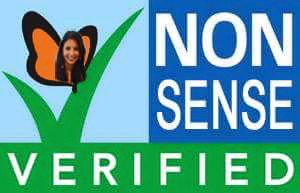I have a crisis of conscience.
Because of a tick-borne disease I contracted last year, I am no longer able to eat beef, pork, or dairy products without getting an allergic reaction. The past few months have been spent searching for alternatives, which often means selecting vegan options that tend to be inferior in taste and nutrients. That is in addition to an overwhelming number of those products carrying the annoying little butterfly logo of the Non-GMO Project.
That logo is virtually inescapable when you have genuine dietary limitations and need to seek out niche foods.
So, I couldn’t have been more excited when I thought I had struck gold with a dairy-alternative plant-based “milk” brand, Ripple. The FAQ page of this company talked about many of the environmental perks of conventional farming, including how minimal- to no-till conventional farming creates “a good environment for earthworms and other soil organisms” and how areas where its ingredients are grown require very few insecticides. It even says that its farmers use an “inert grass herbicide to kill volunteer wheat, and this herbicide has a toxicity rating (LD 50) less than that of table sale.” They may not have come right out and used the “g” word, but we all know exactly what herbicide they’re referring to.
Then imagine my disappointment to see that little Non-GMO Project logo on the back of Ripple’s bottle — that pervasive, offensive, misleading emblem. The fact is, there’s not a single ingredient in that bottle that has a GMO counterpart, so despite an allergy that already funnels my diet toward many niche product lines, I am forced to fork over even more money to the cashier for this company to be in the Non-GMO Project’s pay-to-play scheme.
I hate it, and I’m not the only one in this position.
Nick Saik, one of social media’s most well-known champions of bioengineered foods, feels my pain. His wife has a gluten sensitivity, and his young son has been having reactions to dairy products. He’s left with limited opportunities to avoid products sporting non-GMO labels. He has said it best: “Here I sit, a guy who espouses the shitty nature of the non-GMO label, with a pantry full of it at home.”
It’s an immensely frustrating feeling. There is a real need for niche products that don’t give in to the Non-GMO Project label. I’m sure that many companies (General Mills, for example) are looking for ways to play both sides of the fence in an increasingly competitive food market. The likes of Dr. Oz and Food Babe and Zen Honeycutt have sown the seeds of doubt about today’s farmers into the public’s psyche. Those media personalities have cast modern agriculture into a dark hole, and it sometimes feels as if our industry ineffectively has little more than a gardening trowel to get itself out.
What’s the best step for us as producers and consumers? Outright brand boycotts are hard. Sometimes it’s because of limited options; other times it’s because the labeled products are so desirable that you’re punishing yourself or your family by switching to another brand. Aside from the dairy-alternative “milk” mentioned earlier, Simply’s orange and apple juices are the only other products in my house with the Non-GMO Project label on them. Try telling a 4-year-old that he or she can’t have the apple juice they love so much. Buying it goes against my ideology, and I carry guilt for making that purchase, but there’s also a sense of stress reduction knowing that my picky kids are drinking something that they actually like.
I say this aware that brands such as Simply are arguably the worst kind of offenders in the non-GMO playing field. While I don’t feel there are any advantages to the production of non-GMO corn, I would at least understand that there is a farming/production distinction to be made there. However, Simply’s orange juice, for example, has nothing besides oranges in the ingredients list, and despite there being no such things as genetically engineered oranges, the top of each bottle says “Non-GMO” in big letters. The marketing tactic there is obvious to the dwindling numbers of us who know better.

I do take heart in the fact that Simply doesn’t splatter Non-GMO Project labels across its website, and on a product such as its apple juice, that particular label is depicted fairly small on the back and non-colorized. Because my family likes the taste of Simply’s orange and apple juices, I have reached out to them directly with my viewpoint about the non-GMO labeling on their juices (it was a perfectly pleasant discussion). I don’t want to sit idly by as the number of misleading labels rise and consumers, thusly, lose the opportunity for choice in the grocery store aisle. Part of me believes that being a customer of Simply gives me more power for them to listen to my feedback and perhaps make the right decisions down the road.
There is no question that, because our food system is as complex and nuanced as it is, there will need to be questions asked and difficult decisions made by consumers. But when an organization such as the Non-GMO Project sets out to vilify farmers by saying that bioengineered crops “pose a serious threat to farmer sovereignty and to the national food security of any country where they are grown” or falsely that farmers who use these kinds of crops are beholden to “the world’s largest chemical companies,” simply watching the world pass us by is, morally, an option we don’t have.
I wish that if we, as a society, feel compelled to use non-GMO labels, that we use them to make honest distinctions in agricultural production and not create phony comparisons. Some of us out there already have actual limitations in food choice and have enough product verbiage to wade through — we don’t need the perception of even more division.
This article and video pieces were a collaboration between AGDAILY Managing Editor Ryan Tipps and KNOW IDEAS MEDIA filmmaker Nick Saik. The goal is to discuss how science and the modern food system interact, and how those results are perceived in society.



